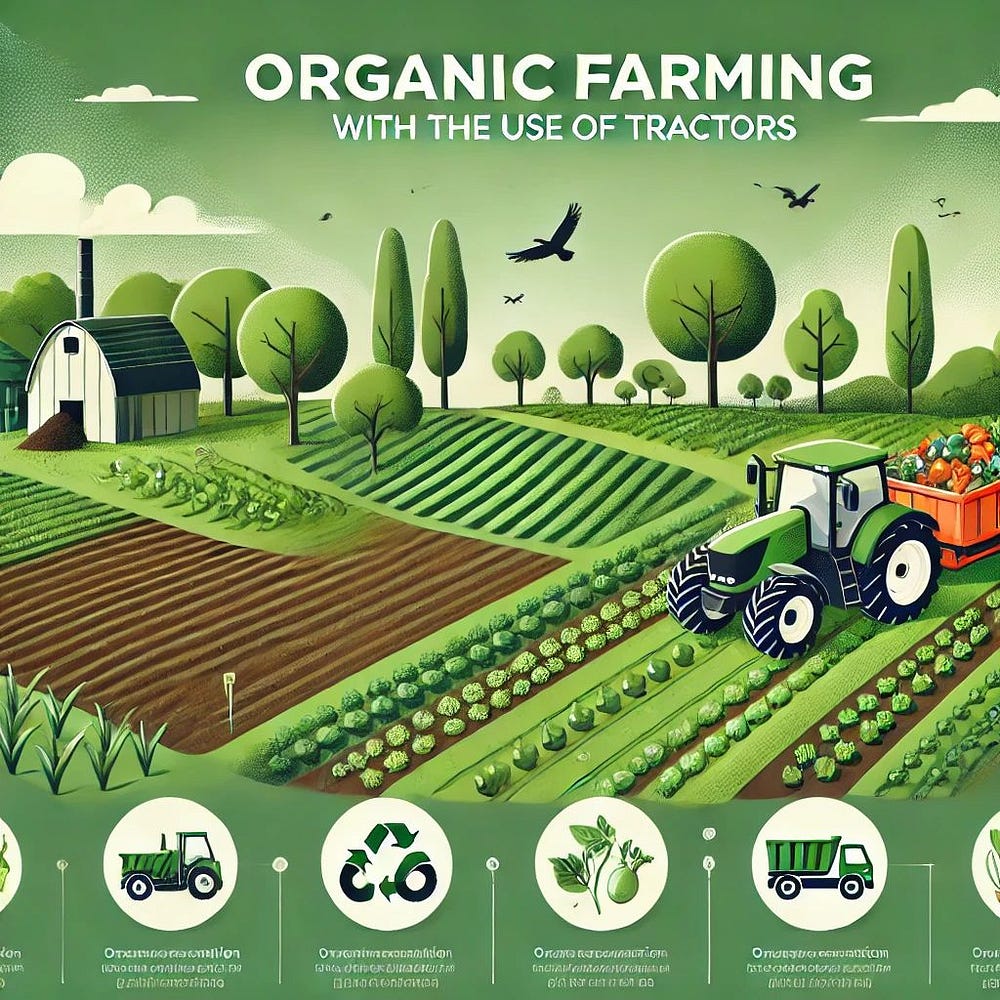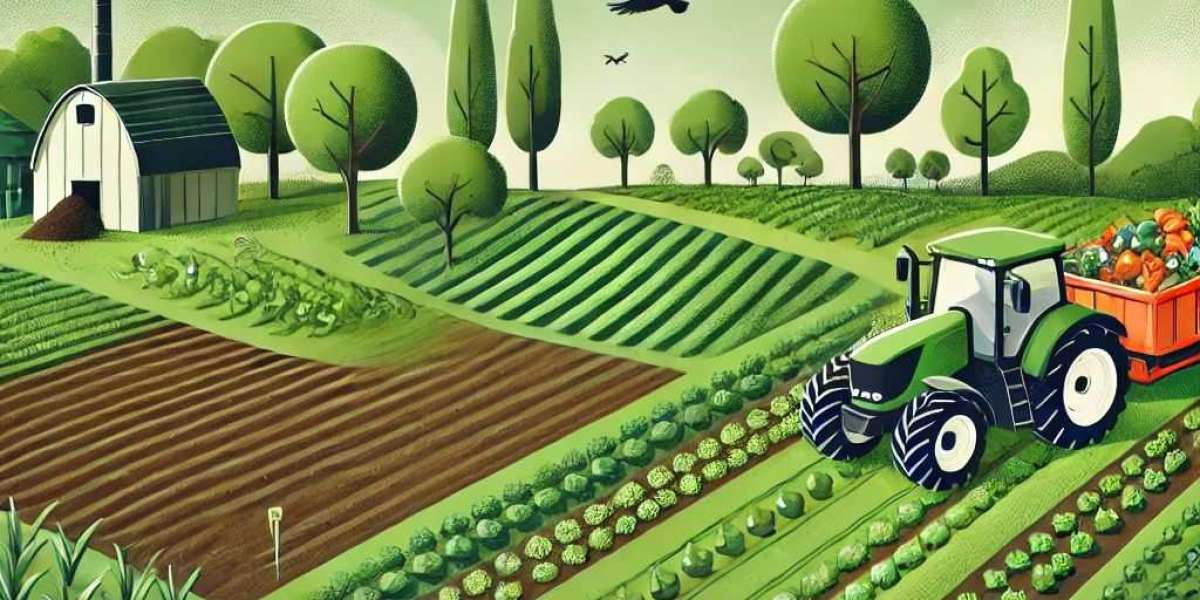Organic farming emphasizes growing crops and raising livestock in ways that promote ecological balance, conserve biodiversity, and avoid the use of synthetic pesticides, fertilizers, and genetically modified organisms. The method focuses on maintaining soil health, enhancing natural ecosystems, and producing food that is environmentally friendly. While traditional organic farming practices often focus on manual labor or small-scale tools, the integration of tractors has become increasingly important in modern organic agriculture, providing a sustainable balance between technology and nature.

Role of Tractors and mini tractors in Organic Farming
Tractor plays a significant role in organic farming even they are mini tractor. by enhancing productivity while ensuring the preservation of organic principles. Here’s how they contribute to sustainable farming practices:
- Efficient Tillage and Soil Management: Tractors equipped with specialized plows and harrows can efficiently till the land without disturbing the soil’s organic matter. Conservation tillage practices, which involve minimal soil disruption, help prevent soil erosion and retain moisture, ensuring long-term soil health. This is essential for organic farming, which relies heavily on fertile and biologically active soils.
- Mechanical Weed Control: In the absence of chemical herbicides, organic farmers rely on physical methods for weed management. Tractors with precision tools such as row cultivators or rotary hoes allow for effective weed control without harming crops. This reduces labor costs and increases productivity while adhering to organic principles.
- Composting and Natural Fertilizer Application: Tractors can be equipped with compost spreaders to distribute organic fertilizers such as compost, manure, or green cover crops. This helps replenish soil nutrients naturally, reducing the need for synthetic chemicals and promoting healthier plant growth.
- Pest Management: Organic farms often use tractors for mechanical pest control, such as crop rotation and intercropping. This enhances biodiversity, which naturally reduces pest populations and strengthens the farm’s resilience to pests without relying on harmful pesticides.
- Reduced Carbon Footprint: Although tractors are powered by fuel, advancements in technology have led to more fuel efficient tractor models. Additionally, the reduced reliance on synthetic chemicals in organic farming offsets some of the environmental impacts of tractor use, making this combination more eco-friendly compared to conventional farming.
Balancing Technology and Sustainability
While tractors are indispensable for modern organic farming, it’s important to balance mechanization with sustainability. Innovations like electric or hybrid tractors and precision farming tools further reduce environmental impacts, helping farmers stay aligned with organic principles. These technologies help make organic farming more scalable and profitable without compromising its core values of sustainability and environmental stewardship.
In summary, tractors in organic farming enhance efficiency, conserve labor, and help maintain ecological practices. Their careful use ensures that organic agriculture remains both productive and sustainable in an increasingly demanding agricultural landscape.
If You Are Looking For More Interesting information, follow our page for regular updates.
Thank you


